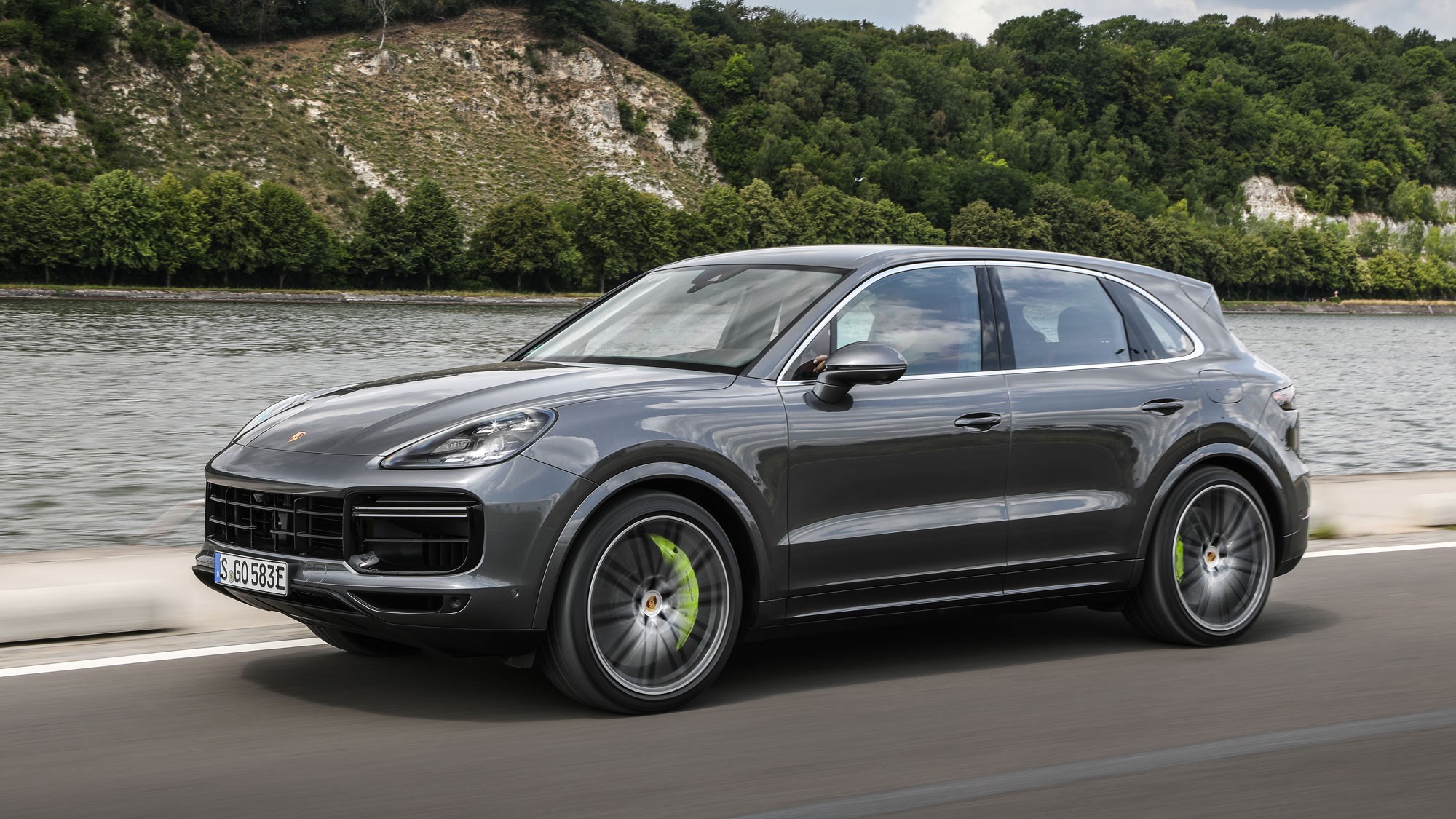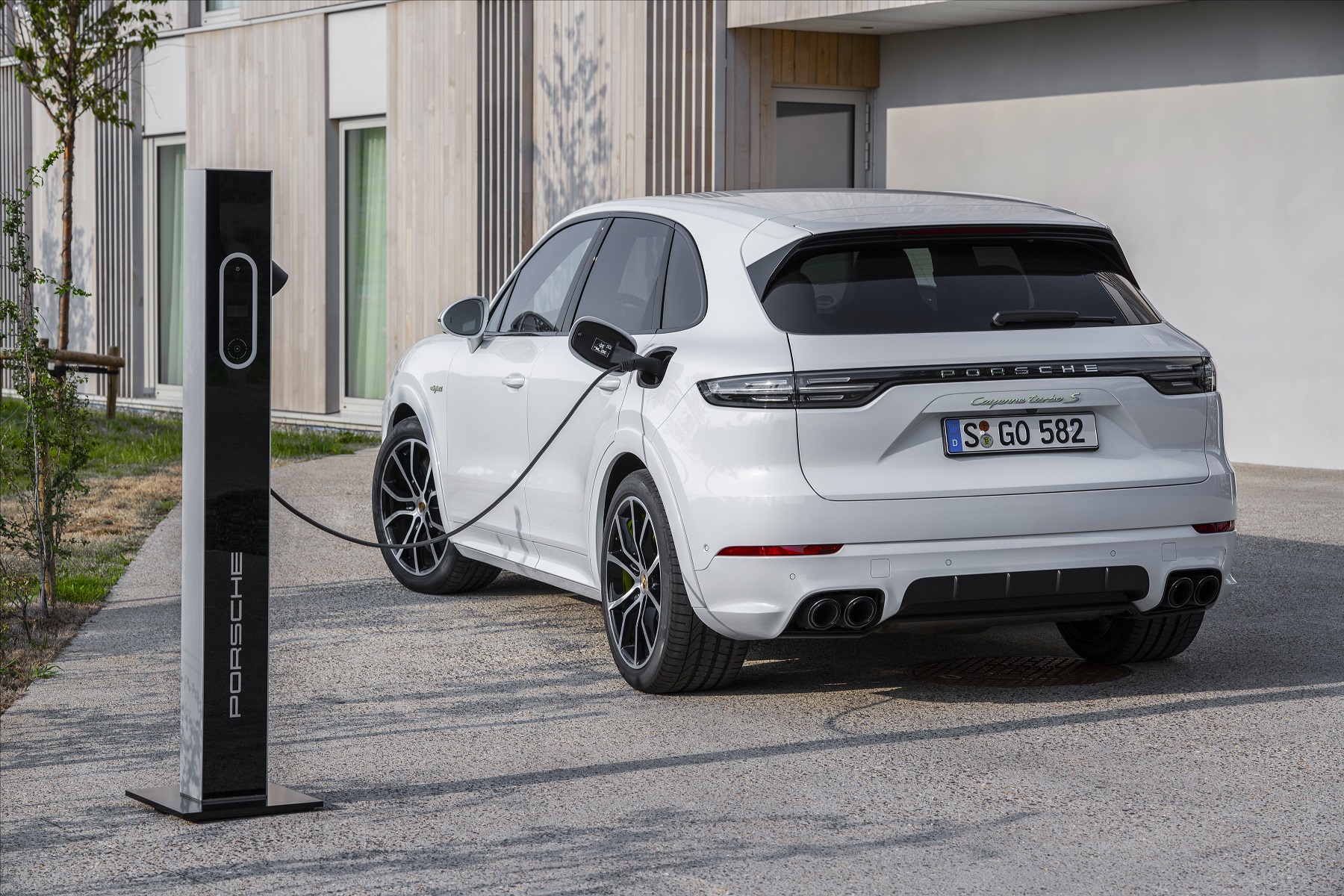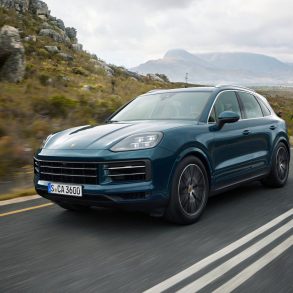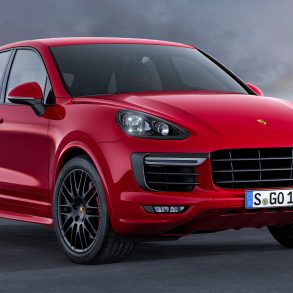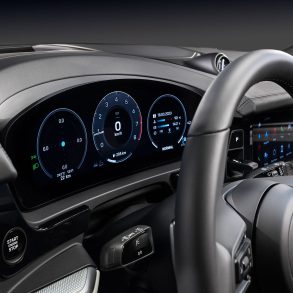Porsche Cayenne Turbo S E-Hybrid SUV (2019 – 2023) – Ultimate Guide
Porsche’s top plug-in hybrid SUV is a beastly heavyweight, both in terms of size and performance. It weighs over 5,600 lbs, partly due to its pack of batteries and electric motor. However, these electric components are not just ballast and perfectly complement the 4.0-litre twin-turbocharged V8 engine. Altogether, the hybrid powertrain generates a thumping 670 hp and 663 lb-ft of torque. It is the most powerful model in the Cayenne lineup.
That power helps the big SUV shrug off its weight and barrel to 60 mph in under 4 seconds and on to a 183 mph top speed. It is at par with rivals such as the BMW X5 M or Audi RSQ 8. However, unlike the non-hybrid challengers, the Cayenne Turbo S E-Hybrid can also reach top speeds of 83 mph on electric power alone.
A variety of driving modes mean that the SUV can cruise on either battery or gas engine, independently of each other. They can also work together, with the car’s intelligent systems making continuous tweaks for a seamless driving experience.
The Cayenne Turbo S E-Hybrid comfortably seats five adults in a well-laid-out cabin. Cargo space is not as generous as rivals, but Porsche makes up for this with excellent build quality and a decent accompaniment of standard features.
According to Porsche, the Cayenne Turbo S E-Hybrid brings ‘a mix of sustainability and driving dynamics that will brighten the face of any sports car enthusiast. There’s the issue of the price tag, though. That $173,800 MSRP pushes the car away from the mass market into niche territory.
Pictures

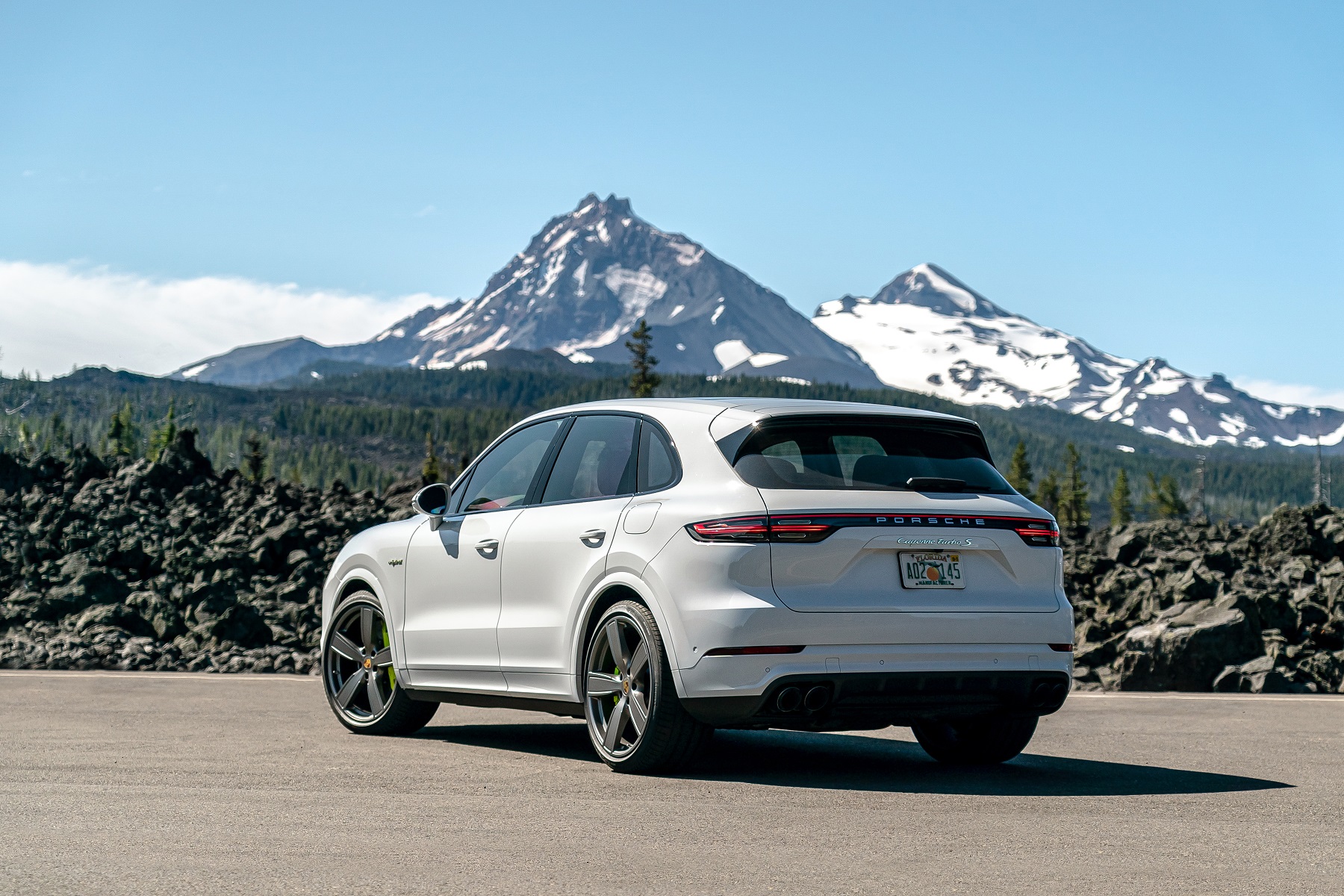
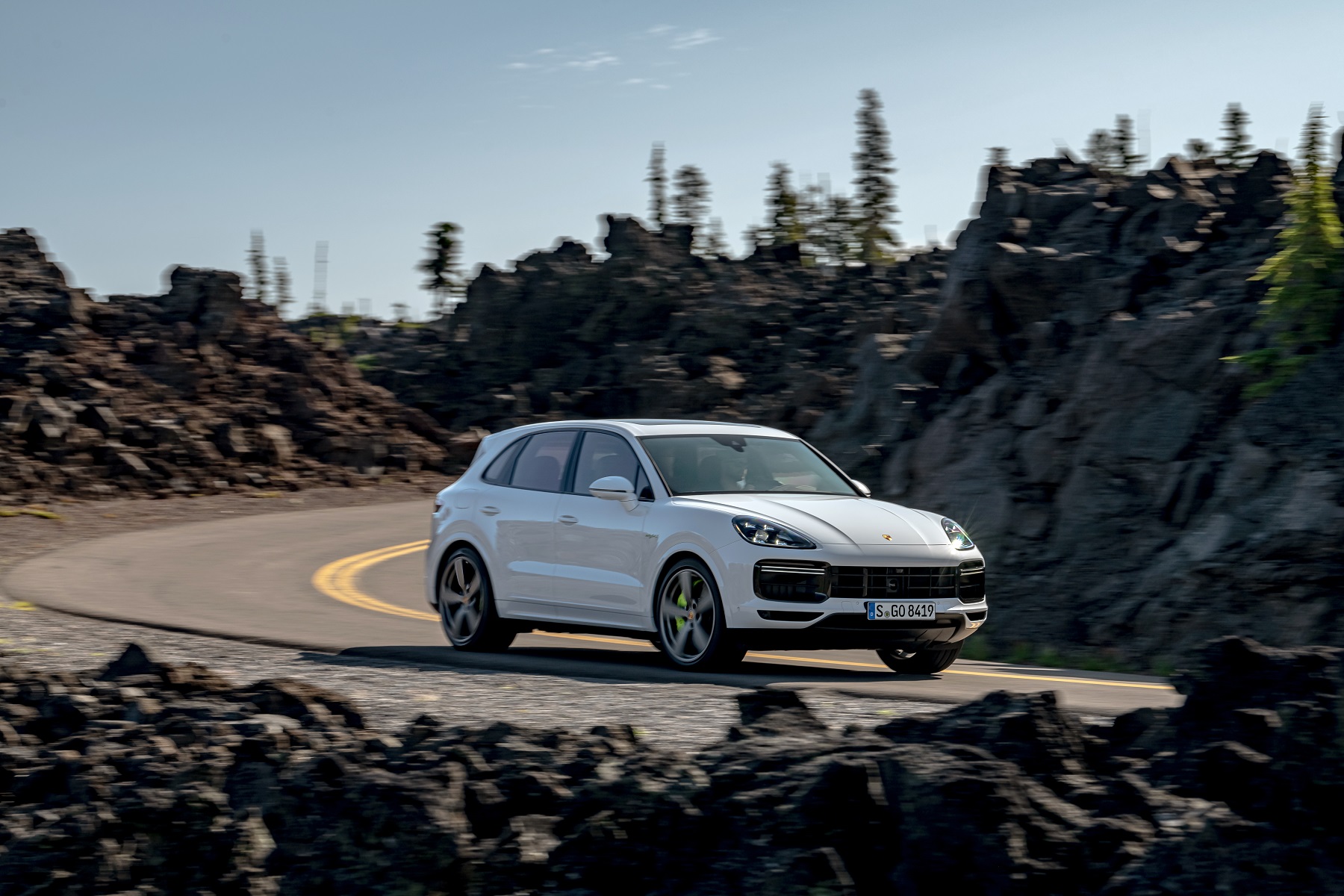
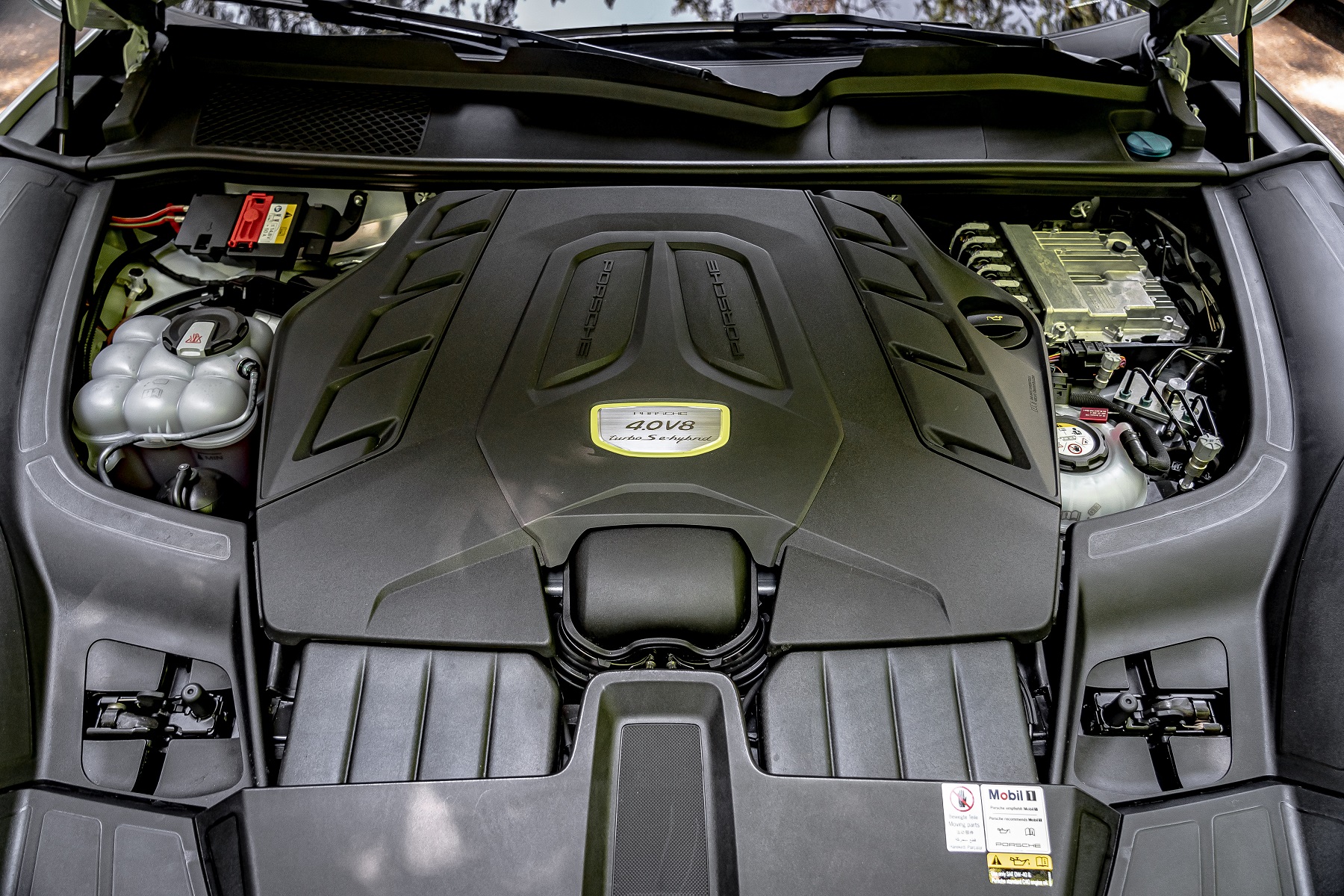
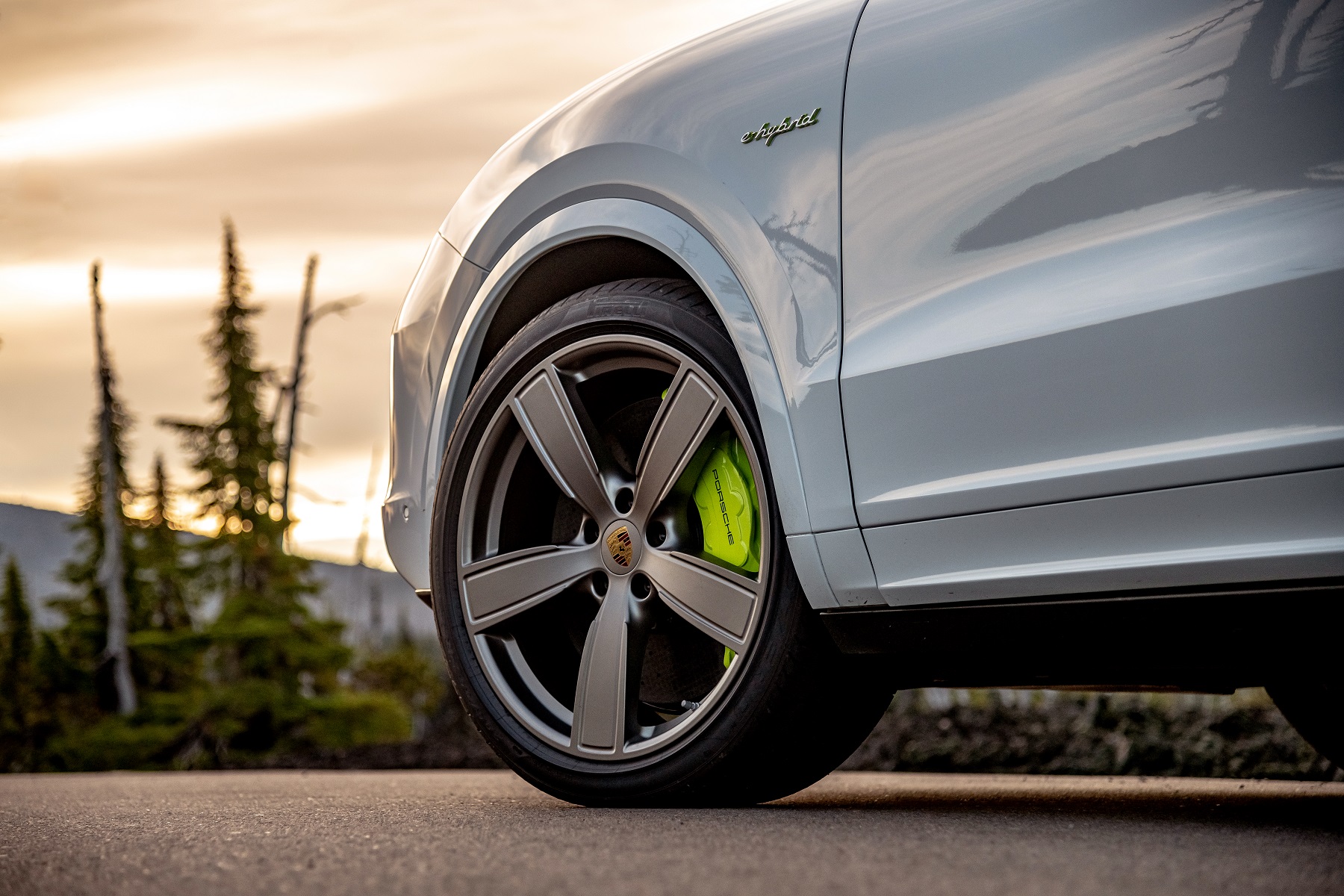
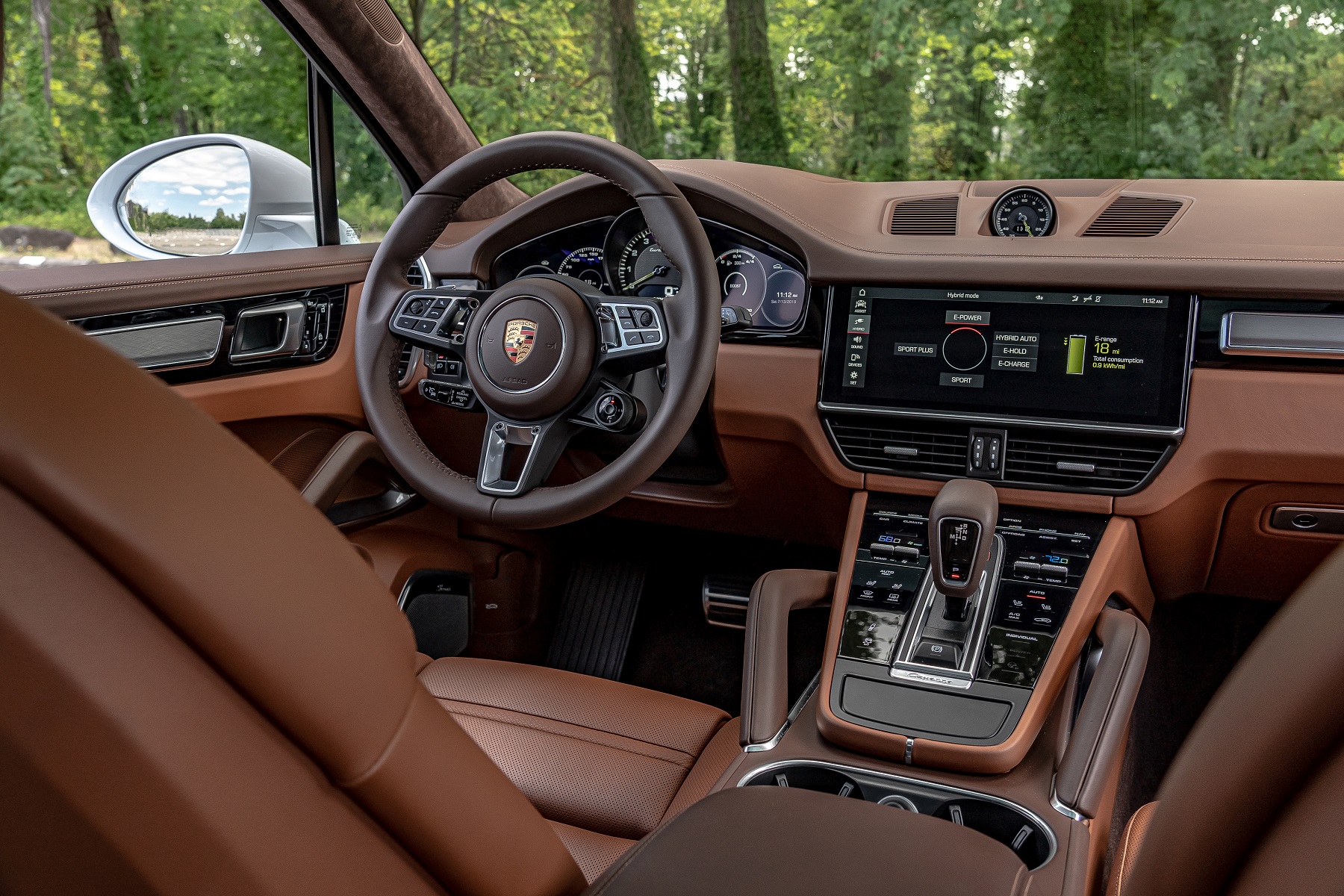
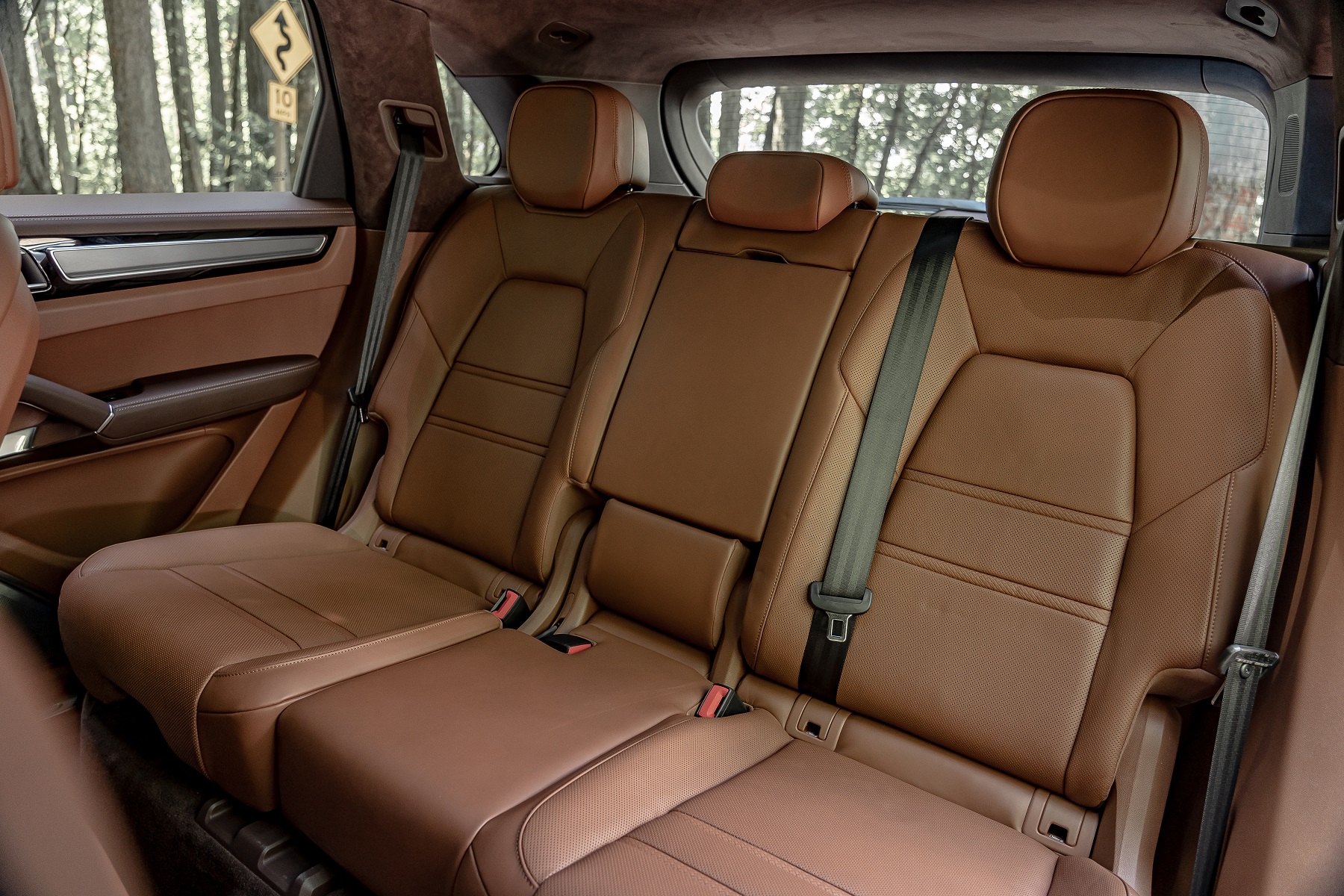
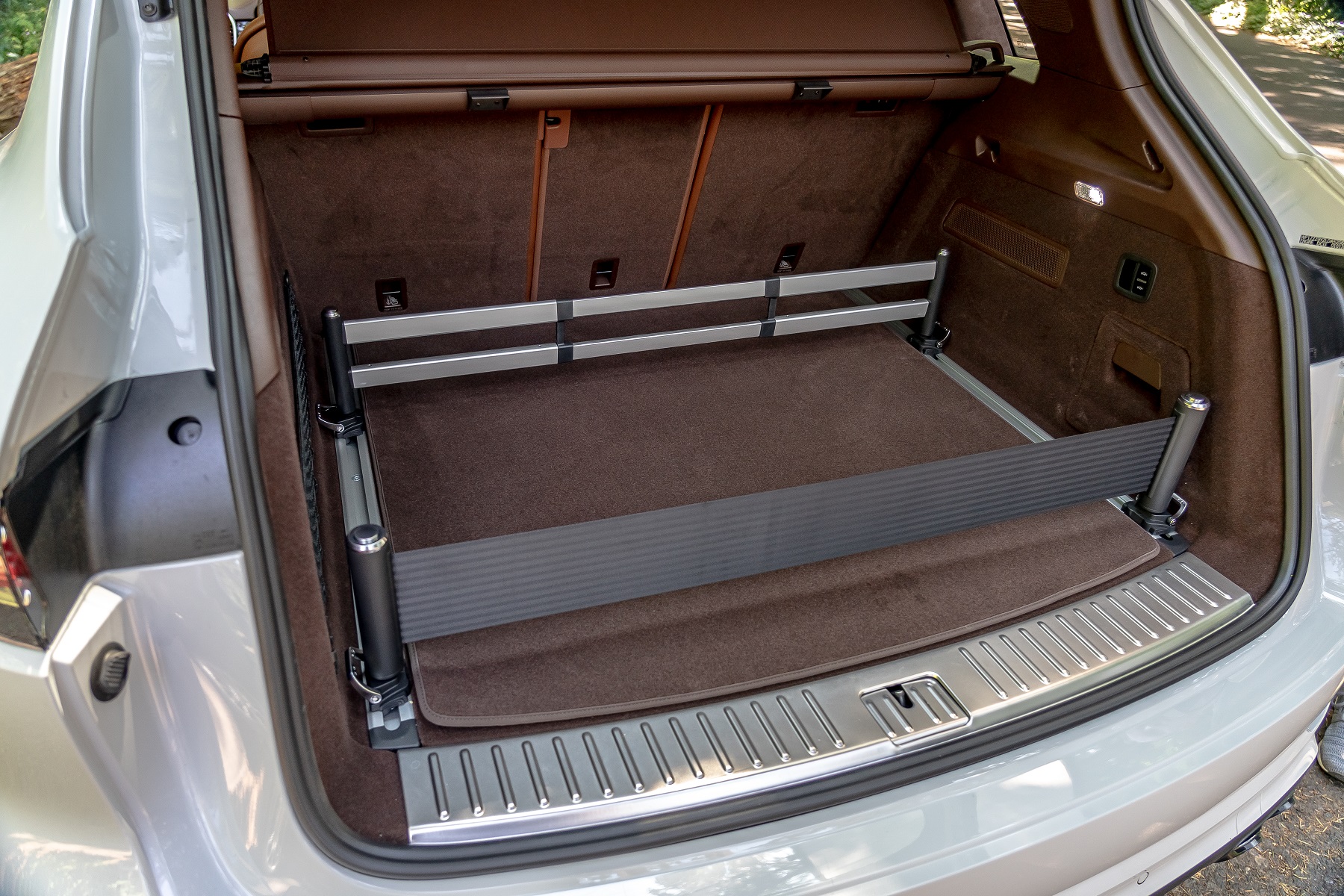
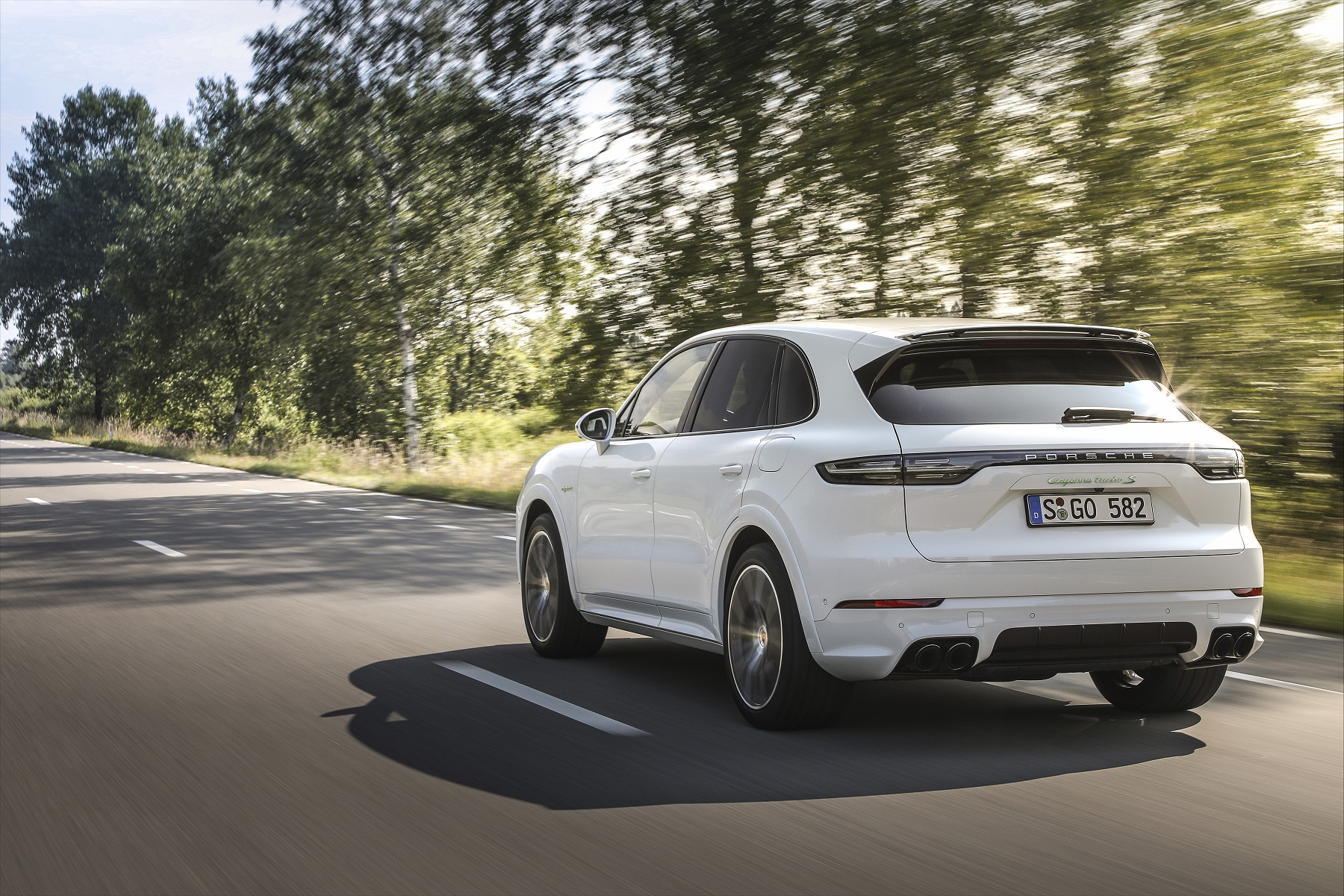
Video – 2020 Porsche Cayenne Turbo S E-Hybrid Review
Press Release (August 12, 2019)
Most Powerful: Porsche Cayenne Turbo S E-Hybrid Models Announced
Cayenne Turbo S E-Hybrid, Cayenne Turbo S E-Hybrid Coupe and Cayenne E-Hybrid Coupe join lineup
Atlanta, Georgia. Today Porsche announced the new Cayenne Turbo S E-Hybrid and Cayenne Turbo S E-Hybrid Coupe: the most powerful Cayenne models ever. With 670 horsepower and 663 lb-ft of torque courtesy of a 4.0-liter twin-turbo V8 combined with an electric motor, the new range-topping Cayenne models are the latest examples of Porsche using plug-in hybrid technology to enhance performance. Both new models will arrive as part of the 2020 model year. A third new model also debuts today: the 2020 Porsche Cayenne E-Hybrid Coupe.
All three models bear distinctive Acid Green coloring around their badges, and on their brake calipers. The Sport Chrono Package, which includes a mode switch featuring the Sport Response button, is also standard on all three vehicles. In the case of the Cayenne Turbo S E-Hybrid, the same active roof spoiler found on the Cayenne Turbo is able to make aerodynamic adjustments with five different positions depending on a variety of factors including speed and drive mode. The Cayenne Turbo S E-Hybrid Coupe and Cayenne E-Hybrid Coupe also share the same design as other Cayenne Coupe derivative models. A roofline that is 0.78 inches (20 millimeters) lower and an increase in rear track width of 0.70 inches (18 millimeters) create a more muscular appearance and stance.
For all Cayenne Coupe models, Porsche combined a fixed spoiler above the rear window with a new adaptive rear spoiler below it. The adaptive spoiler extends by 5.3 inches (135 mm) at speeds of 56 mph and up to enhance aerodynamic stability.
The new Cayenne Turbo S E-Hybrid and Cayenne Turbo S E-Hybrid Coupe models accelerate from 0-60 mph in 3.6 seconds, toward an electronically limited top track speed of 183 mph.
A 4.0-liter twin-turbo V8 engine making 541 horsepower (404 kW) combined with a 134-horsepower (100 kW) electric motor generate a total system output of 670 horsepower (550 kW) and 663 lb-ft of torque (900 Nm). The electric motor sits between the gasoline engine and the eight-speed Tiptronic S automatic transmission, allowing the respective power sources to propel the vehicle in combination or independently, depending on the selected drive mode. Porsche Traction Management (PTM) all-wheel drive is standard equipment on all Cayenne models including the newly announced versions. The electric motor is connected to a 14.1 kWh lithium ion battery offering 30 percent more energy capacity than the battery used in previous generation plug-in hybrid Cayenne models. The same battery is used in other current plug-in hybrid Cayenne models.
As the top models, these two vehicles come with improved standard equipment as compared to the Cayenne Turbo and Cayenne Turbo Coupe. Of particular significance, Porsche Ceramic Composite Brakes (PCCB), Porsche Dynamic Chassis Control (PDCC), Porsche Torque Vectoring Plus (PTV+) and Sport Chrono Package are all included from the factory as standard. A 7.2 kW onboard charger and 21-inch AeroDesign Wheels including wheel arch extensions in exterior color are also standard equipment on the top two models. Sport Exhaust and Rear Axle Steering are both available as options. The upgraded charger enables a complete recharge of the 14.1 kWh battery in as little as 2.4 hours when using a 240-volt connection with a 50-amp circuit. All of these features except PTV+ are optionally available on the V6-powered Cayenne E-Hybrid Coupe.
Both models include 18-way Adaptive Sport Seats as standard equipment. The seating layout for the standard body style includes a rear bench seat with three seating positions. By contrast, the Cayenne Turbo S E-Hybrid Coupe and Cayenne E-Hybrid Coupe feature two seating positions with separated individual bucket seats. For those customers who wish to take advantage of three rear seating positions, the rear bench seat design from the standard body is available to customers as a no-cost option. The rear seats in the coupe also sit lower to offset the Coupe roofline, which is 0.78 inches (20 millimeters) lower than the standard model.
The same Lightweight Sport Package versions associated with the other Cayenne Coupe models are also available to the Cayenne Turbo S E-Hybrid Coupe and Cayenne E-Hybrid Coupe. This package, which is currently available in two forms, adds a wide range of exterior and interior equipment. The changes include a carbon fiber roof, 22-inch GT Design Wheels, the Sport Design Package, the Carbon Interior Package, a Heated Multifunction Sport Steering Wheel in Alcantara, an Alcantara roof liner, black and silver Houndstooth seat centers and various exterior body parts in carbon fiber. Depending on the selected version, the Lightweight Sport Package saves up to 48 lbs.
In addition to the new top models, Porsche also announced the Cayenne E-Hybrid Coupe today. Combining the same 3.0-liter single-turbo V6 and electric motor as the standard Cayenne E-Hybrid, total system output is 455 horsepower and 516 lb-ft of torque. Thanks to the standard Sport Chrono Package, the 0-60 mph sprint happens in 4.7 seconds. Top track speed for this model is 157 mph.
Eight-way Sport Seats offer significant side and thigh bolstering, further emphasizing the sporty intent of the Cayenne E-Hybrid Coupe. A fixed glass panoramic roof, and 20-inch Cayenne Design wheels also represent upgrades in standard equipment over the Cayenne E-Hybrid.
The Porsche Cayenne Turbo S E-Hybrid, Cayenne Turbo S E-Hybrid Coupe and Cayenne E-Hybrid Coupe are all expected to reach U.S. Porsche dealerships in the first quarter of 2020. EPA fuel economy estimates have not been announced at this time. The starting MSRPs are $161,900 for the 2020 Porsche Cayenne Turbo S E-Hybrid, $164,400 for the 2020 Porsche Cayenne Turbo S E-Hybrid Coupe and $86,400 for the 2020 Porsche Cayenne E-Hybrid Coupe, all excluding $1,350 for processing, delivery and handling.


